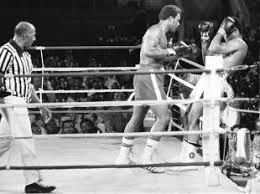Nib #040 — Pete Rose and Rhetorical Charity
Nib #040 — Pete Rose and Rhetorical Charity
There are good reasons for people to disagree with you.
This seems obvious in the abstract. But it’s one of the hardest lessons for young writers to learn — especially amidst today’s toxic national discourse. The good news is, rhetorical charity is not just a more virtuous approach to writing — it’s much more effective.
Consider the case of Pete Rose and the Baseball Hall of Fame.
Rose was the Cincinnati Reds legend banned for life from Major League Baseball for gambling on games (including Reds games) as a player and manager. The ban left Rose ineligible for Cooperstown.
Ever since, Rose’s Hall of Fame candidacy has been the source of endless, often heated, debate. Rose’s death last week (RIP) revived the argument — and the passion it elicits from both sides.
The arguments boil down to:
“Rose is the all-time hits leader. Put him in.”
And…
“He disgraced the game (and lied about it for decades). Keep him out.”
Neither argument is crazy, however many rants they inspire. But each is also a bit superficial.
To people who care about the integrity of sports, Rose’s gambling on games is really bad. Rose advocates chanting “Hit King! Hit King!” does not answer that legitimate concern.
In the same way, that gambling businesses are now MLB corporate partners undermines of League’s moral authority.
The closer you look, the more interesting and persuasive potential arguments become.
Shouldn’t Rose’s death open the door to a reassessment of his “lifetime” ban?
What does Rose’s pattern of not betting on the Reds when a certain mediocre pitcher was on the mound do to the pro-Rose talking point that he only ever bet on his team to win?
Grappling with these kinds of questions would help either side break through the “Tastes Great! Less Filling!” monotony.
To really change readers’ minds, writers need to answer the other side’s best arguments. Learning how to do so — with empathy, justice, and generosity — will make you a better advocate, a better writer, and ultimately a better person.
Until next week… Keep writing!

All Rights Reserved 2024 Inkling Communications | Privacy Policy
Website Designed By Royals Advertising










